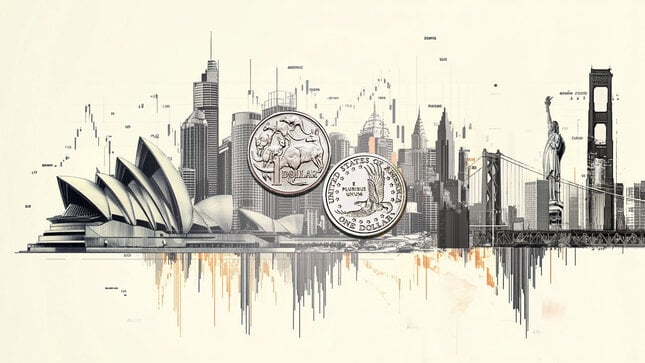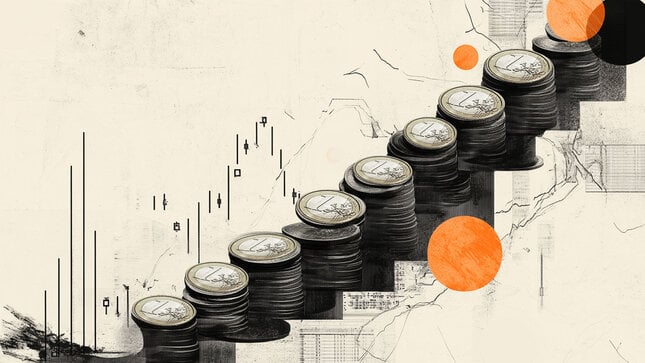More often than not, when there’s an interest rate hike or when traders are expecting one, demand for that country’s currency rises and so does its value. On the other hand, when a central bank cuts rates or is expected to do so, demand for their currency drops along with its value. This is because the central bank’s benchmark interest rate dictates the rate of return for holding that country’s assets.
Just this week, ECB officials caused quite a ruckus in the markets by saying that they are considering negative deposit rates. This isn’t the first time that this issue has been brought up, as ECB Governor Draghi talked about negative rates back in June. How in the world is that supposed to work?!
Positive deposit rates mean that local banks get a small return for storing some of their cash reserves with the central bank. By implementing negative deposit rates, a central bank would end up charging banks for keeping cash stored in their vaults. In other words, having negative deposit rates would discourage local banks from keeping more cash lying around instead of lending it out.
Of course changes in deposit rates also tend to have an impact on overall interest rates. You see, when banks can no longer earn returns from keeping cash with the central bank, they are likely to seek gains elsewhere. And with more cash to lend to individuals and businesses, banks won’t mind charging lower loan rates just to encourage more borrowing.
With banks getting smaller profits from lending money out, they could wind up offering lower returns on their investment products and securities. In effect, this would drag down average interest rates in the country, eventually resulting to weaker demand for its assets and currency.
The potential impact isn’t always as straightforward though, as some naysayers argue that local banks could simply pass the cost of negative deposit rates to consumers. If that’s the case, banks would end up charging higher loan rates and therefore discourage borrowing activity. This is probably one of the potential repercussions that FOMC official James Bullard is worried about when he mentioned that the Fed should study the impact of negative deposit rates.
Editors’ Picks

AUD/USD defends gains below 0.7100 amid the Fed-RBA divergence
AUD/USD attracts some dip-buyers near mid-0.7000s during the Asian session on Monday, stalling last week's modest pullback from a three-year peak. The US Dollar continues with its struggle to attract any meaningful buyers amid bets for further rate cuts by the Fed, bolstered by the softer US CPI report on Friday. In contrast, the Australian Dollar retains a bullish bias on the back of the RBA's hawkish stance, which further acts as a tailwind for the currency pair.

USD/JPY stays firm around 153.00 after Japan's Q4 GDP miss
USD/JPY kicks off the new week on a positive note as Japan's weak Q4 GDP growth tempers bets for an immediate BoJ rate hike and undermines the Japanese Yen. Investors, however, seem convinced that the BoJ will stick to its policy normalization path amid hopes that PM Takaichi's policies will boost the Japanese economy. In contrast, cooling US consumer inflation reaffirmed bets for more Fed rate cuts in 2026, which acts as a headwind for the US Dollar and should cap the currency pair.

Gold buyers hesitate amid holiday-thinned trading
Gold trades volatile, but within range, as US, China holidays-led thin trading exaggerates moves. The US Dollar extends range play into the US GDP week, with markets pricing at least two Fed rate cuts this year. Technically, Gold tests key support at $5,000; daily RSI still remains bullish.

Top Crypto Losers: Dogecoin, Zcash, Bonk – Meme and Privacy coins under pressure
Meme coins such as Dogecoin and Bonk, alongside the privacy coin Zcash (ZEC), are leading the broader market losses over the last 24 hours. DOGE, ZEC, and BONK ended their three consecutive days of recovery with a sudden decline on Sunday, as crucial resistance levels capped the gains. Technically, the altcoins show downside risk, starting the week under pressure.

Global inflation watch: Signs of cooling services inflation
Realized inflation landed close to expectations in January, as negative base effects weighed on the annual rates. Remaining sticky inflation is largely explained by services, while tariff-driven goods inflation remains limited even in the US.
RECOMMENDED LESSONS
Making money in forex is easy if you know how the bankers trade!
I’m often mystified in my educational forex articles why so many traders struggle to make consistent money out of forex trading. The answer has more to do with what they don’t know than what they do know. After working in investment banks for 20 years many of which were as a Chief trader its second knowledge how to extract cash out of the market.
5 Forex News Events You Need To Know
In the fast moving world of currency markets where huge moves can seemingly come from nowhere, it is extremely important for new traders to learn about the various economic indicators and forex news events and releases that shape the markets. Indeed, quickly getting a handle on which data to look out for, what it means, and how to trade it can see new traders quickly become far more profitable and sets up the road to long term success.
Top 10 Chart Patterns Every Trader Should Know
Chart patterns are one of the most effective trading tools for a trader. They are pure price-action, and form on the basis of underlying buying and selling pressure. Chart patterns have a proven track-record, and traders use them to identify continuation or reversal signals, to open positions and identify price targets.
7 Ways to Avoid Forex Scams
The forex industry is recently seeing more and more scams. Here are 7 ways to avoid losing your money in such scams: Forex scams are becoming frequent. Michael Greenberg reports on luxurious expenses, including a submarine bought from the money taken from forex traders. Here’s another report of a forex fraud. So, how can we avoid falling in such forex scams?
What Are the 10 Fatal Mistakes Traders Make
Trading is exciting. Trading is hard. Trading is extremely hard. Some say that it takes more than 10,000 hours to master. Others believe that trading is the way to quick riches. They might be both wrong. What is important to know that no matter how experienced you are, mistakes will be part of the trading process.
The challenge: Timing the market and trader psychology
Successful trading often comes down to timing – entering and exiting trades at the right moments. Yet timing the market is notoriously difficult, largely because human psychology can derail even the best plans. Two powerful emotions in particular – fear and greed – tend to drive trading decisions off course.

